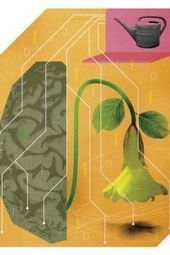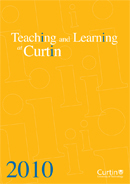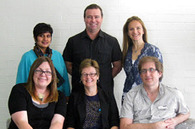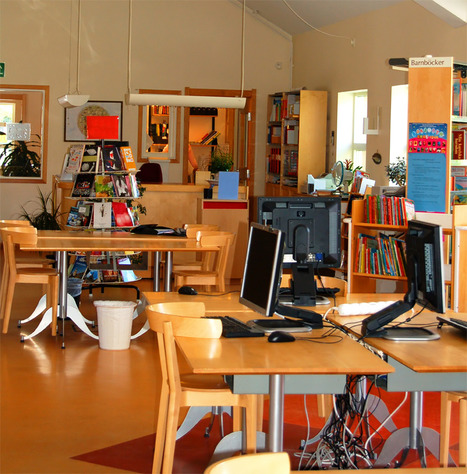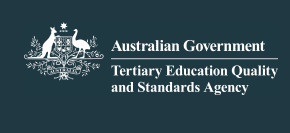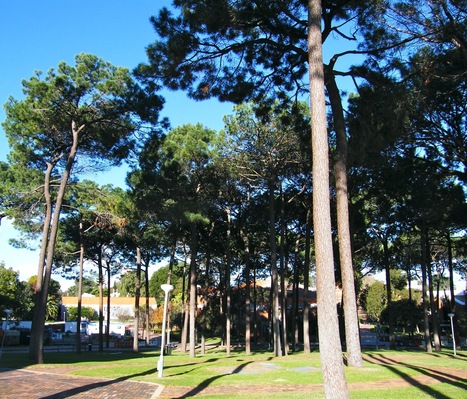Get your teaching life organized using Evernote. Sync Evernote with your phone, iPad, Desktop or online. Create lesson plans or to do lists and share with st...
Get Started for FREE
Sign up with Facebook Sign up with X
I don't have a Facebook or a X account

 Your new post is loading... Your new post is loading...
 Your new post is loading... Your new post is loading...
"Education is not the transmission of information or ideas. Education is the training needed to make use of information and ideas. As information breaks loose from bookstores and libraries and floods onto computers and mobile devices, that training becomes more important, not less."
"Educators are coaches, personal trainers in intellectual fitness. The value we add to the media extravaganza is like the value the trainer adds to the gym or the coach adds to the equipment. We provide individualized instruction in how to evaluate and make use of information and ideas, teaching people how to think for themselves."
"Technology can make education better. It will do so, in part, by forcing us to reflect on what education is, identify what only a person can do, and devote educators' time to that."
Tertiary institutions need to step up their efforts online in order to ensure they continue to attract and engage new students.
For as long as I have been involved in education, the focus for finding the key to fixing education has always been about providing professional development for the teachers and administrators. The philosophy is top-down with the intent that knowledge will eventually trickle down to benefit the students.
But, during one of the two ISTE Ignite sessions, I listened to the well respected “education disruptionist,” Will Richardson, sum up 19 of his bold beliefs about education in exactly five minutes. His five minutes were not just inspiring, but I heard it as a call to all educators to stop putting up road blocks and open up the classrooms and allow learning to become powerful and impact the world. There are so many things we are not doing right and, according to Mr. Richardson, we need to start asking “Why wouldn’t we…?” It’s truly five minutes of slides that kindles limitless conversation among those interested in education and definitely worth the few minutes it takes to watch:
In the higher education market a disruption is happening... and you may want to be part of it. Via Peter David Looker
CurtinTeaching and Learning provides leadership and support for teaching and learning through its activities in academic professional development, curriculum design, courses management, elearning, and flexible learning support.
Busy schedules are one reason why educators don't collaborate and connect through social networking platforms. But a lack of time isn't the main issue. It's priorities. Via Peter Mellow, Peter Mellow
Much can be learned about a good lecture by observing Michael Sandel, a Professor of Government at Harvard whose course, "Justice," regularly enrolls more than 700 students. (2 minutes 30 seconds - YouTube video)
PM - Look at the size of the lecture theatre! The video looks really dated, but the way the session is run is amazing! Nice to see a 'flipped classroom' mode a few years before they became popular in educational discussions.
TED Talks Why do people succeed? Is it because they're smart? Or are they just lucky? Neither. Analyst Richard St. John condenses years of interviews into an unmissable 3-minute slideshow on the real secrets of success.
PM - These 'secrets' of success can be applied to students learning and mastering a subject. Get passionate about it!
The can equally be applied to great teaching.
My keynote address given at Aoraki's staff development conference 2012. Some interactive slides have been removed.
The diverse team of eLearning advisors provide elearning workshops, send out periodic newsletter, provide customised consultation, support the eScholar program and more.
Use the 'Filter' pull-down menu above to search for topics by keywords. Via Kim Flintoff |
Lately there has been a fair amount of pressure on educators to cultivate “21st century skills” in their students. But what exactly does this mean?
Open-source textbooks, free for students to use and for professors to modify, are being developed by more companies and adopted in more classrooms...
From
vimeo
We recently had the opportunity not only to read a recent release from Diana Oblinger, President and CEO of EDUCAUSE, but also to discuss her new book titled Game Changers. Game Changers, according to Oblinger, discusses the different models that people are developing to do education better. With mounting accountability and affordability pressures, and a wide variety of student needs, Oblinger was interested to learn the innovative ways people are trying to rethink how they shape the system. Game Changers is a higher view of these stories, as well as discussions of the patterns that have emerged as a result of these efforts. We thank Dr. Oblinger for taking the time to discuss Game Changers, and enjoyed learning more about the innovations taking shape in higher education. For more information about Game Changers, or to order your free copy, visit http://www.educause.edu/research-publications/books/game-changers-education-and-information-technologies.
From
paper
A newspaper by ECAWA - updated daily with a curated selection of articles, blog posts, videos and photos.
Students today have unprecedented access to information. According to educator Karl Fisch, in one week of reading The New York Times, an individual will encounter more information than people in the 18th century would have had access to during the entire course of their lives.
The Tertiary Education Quality and Standards Agency (TEQSA) is Australia’s regulatory and quality agency for higher education. TEQSA’s primary aim is to ensure that students receive a high quality education at any Australian higher education provider.
Students vary greatly in what they get out of lectures. Largely, it’s a question of ‘what you get out depends on what you put in’. The more actively you listen, the better. There are some practical techniques, such as preparing for the lecture ahead of time, taking notes and following up on your notes after the lecture which can help you to get much the most out of your lectures. But first it’s a good idea to consider why universities continue the tradition of giving lectures.
University of Virginia Teaching Resource Center
PM - A perspective from 1998, has anything changed with Web 2.0 and technology use?
1 - The teacher's main task is to guide students through the learning process, not to dispense information.
@ University of California at Berkeley
Since Sal Khan’s 2011 TED Talk, the Khan Academy has been nearly synonymous with “flipped classrooms.” This is because since then, Khan Academy has been promoted by the Gates Foundation as well as major media outlets like CNN and CBS. But, what the media and outsiders (non-educators) fail to recognize is that Khan Academy is “just a tool” and not a methodology or pedagogy on its own. Debates have raged simultaneously in educators’ circles, especially in social media and blogs, about the benefits (or lack thereof) of flipping. Through all of this, the term “flipped classroom” or even “flipping” has been misconstrued and inaccurately represented. Rather than argue about titles or labels, let’s get into the philosophy of flipping.
Too much of the discussion around flipping has been on the technology. Let’s begin to focus on the philosophical decisions teachers and schools need to make to move education forward in a connected world.
Faculty often recommend study groups to students, especially in large courses or in courses where students typically struggle with the material.
Does participation in study groups formed this way make a difference in exam scores? Not according to a study of students in three sections of a 700-student, four-credit lecture and lab introductory biology course. Researchers had predicted that students who participated in study groups would score higher on exams in the course, but they did not. Their scores were not lower, but participating in a study group did not improve exam scores or scores on a pre- and post-content exam. |




